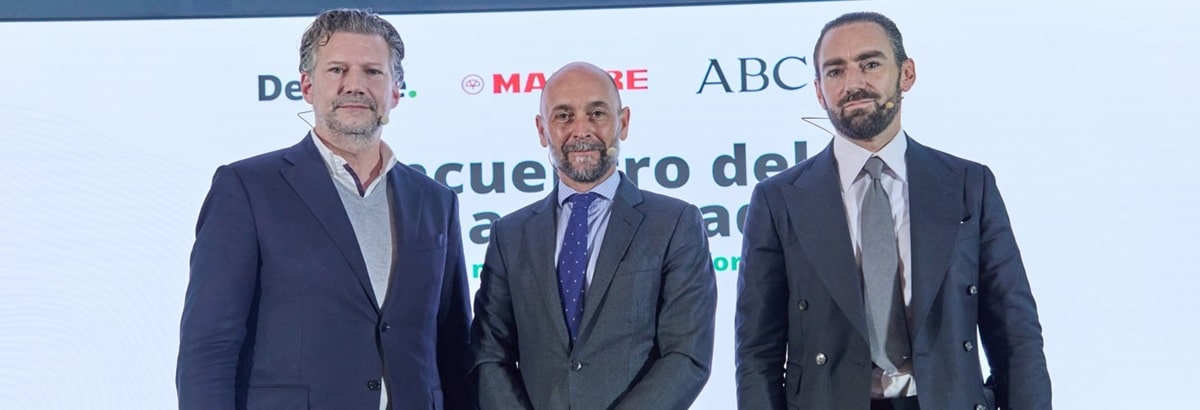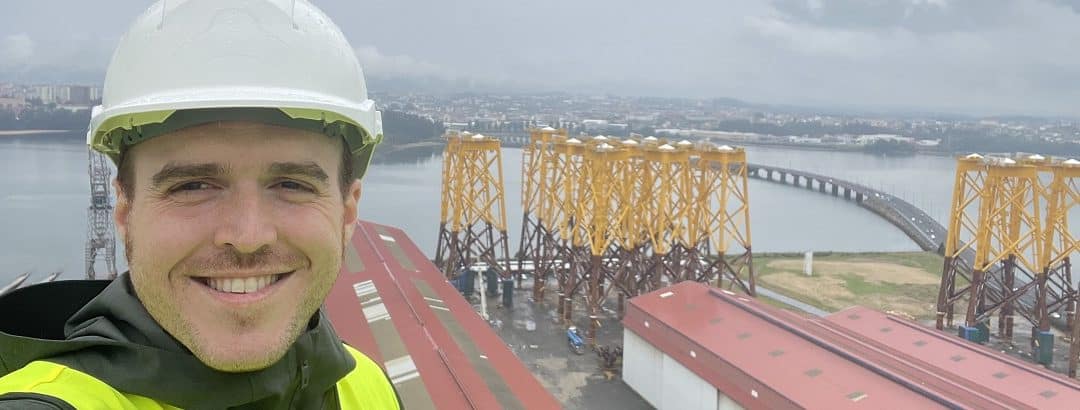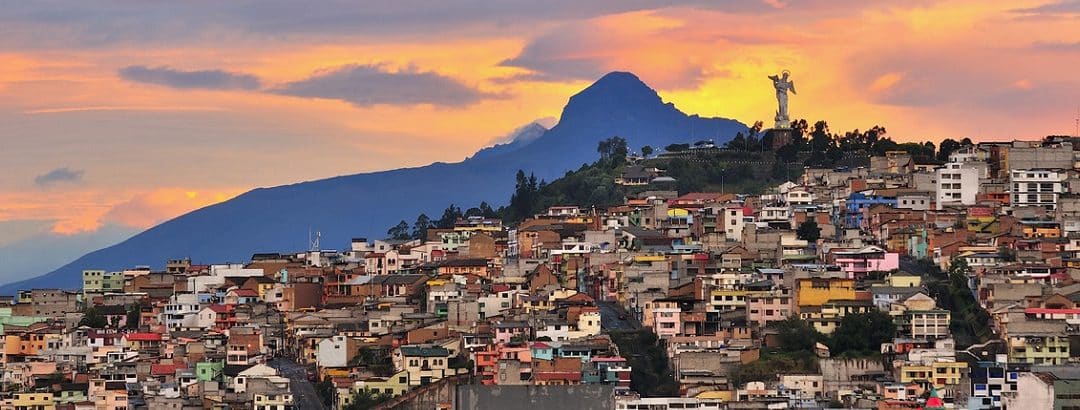Cristina Leon Vera | 11/11/2025
For yet another year, Deloitte brought together prominent leaders and experts from the industry at the Insurance Industry Gathering to discuss the most relevant and current issues affecting companies, and to share different perspectives on the challenges and opportunities they face.
Bosco Francoy, CEO of MAPFRE GLOBAL RISKS, participated in a round table moderated by Sergio Simón, partner at Deloitte, along with Veit Stutz, CEO of Allianz España. The discussion—focused on the impact of the global geopolitical and economic situation on the insurance industry—followed the presentation by Ana Aguilar, chief economist at Deloitte, who placed the attendees in the new global context: a shift from macroeconomics to geoeconomics, where geopolitical, technological, and energy factors are redefining business and financial activity.
A context of uncertainty and opportunities
“We have entered a decade in which the only certainty is uncertainty,” said Stutz at the beginning of the talk, following Aguilar’s remarks on a global economy that, despite the risks of inflation and debt, maintains a degree of resilience driven by innovation and international partnerships.
This environment of fragmentation and constant transformation is having a direct impact on the insurance industry. “We are seeing changes in geopolitics, demographics, energy supply, the aging of the population… and everything is happening at the same time. Clearly, as the insurance industry, we must find answers to these changes, anticipate them, and act accordingly,” assured the CEO of Allianz Spain.
During his presentation, he spoke about the demographic swings in the world—illustrated with cases such as aging in China or the population boom in India—as well as about fragmentation in Europe and political risks. In this scenario, he stressed the essential function of insurance: “The industry plays an essential role in uniting, in cohesion. It’s not just about paying claims, but about offering trust to companies so they can invest and move forward,” he assured.
Proximity and trust to remain essential
Throughout the gathering, there was a consensus among the speakers: the persistence of the sector in the face of changing circumstances. “The insurance industry has demonstrated remarkable resilience and adaptability,” noted Bosco Francoy. “It has always been there, at the service of people, offering not only compensation, but also innovation and foresight,” he emphasized.
Francoy highlighted that, in a complex geopolitical context marked by wars, trade tensions, and natural disasters, insurance remains a fundamental tool for economic recovery.
When Sergio Simón asked him about the keys to the success of MAPFRE GLOBAL RISKS’ extensive trajectory in this regard, the company’s CEO did not hesitate to share three strategic pillars of its philosophy:
- The experience acquired in each country. “The idea is not the size of the market, but to learn how it works in terms of regulation, culture, politics, etc., to act more effectively and offer the best solutions to customers. This is something that MAPFRE has been doing for more than 40 years in Latin America, which has generated trust and credibility with customers. They see MAPFRE as a long-term partner.”
- Constant innovation. “MAPFRE—and our industry in general—always seeks ways to offer the best service to customers. This implies adopting new technologies and adapting to the changes.”
- Comprehensive sustainability. “We do not adopt sustainability just for regulations or to appear ‘green’ to our customers. From the beginning, we understood that it is essential to offer solutions that improve society.”
Technological advancement and human leadership
After analyzing the geopolitical and economic challenges, the participants faced the future of the sector marked by a paradigm shift and technological transformation. In this process, they agreed on the need to keep an eye on the past. “Everything is always built upon a legacy. And this legacy is not negative, but positive,” Stutz stated.
At Allianz, he explained, that foundation has been used to develop more inclusive and sustainable solutions, committed to a balanced digitalization: “We apply artificial intelligence where it makes sense, but we continue to invest in people. Our industry remains a people-centered industry,” he emphasized.
Bosco Francoy, aligned with that vision, highlighted MAPFRE’s commitment to the ethical and responsible use of artificial intelligence: “We have published a Manifesto on Artificial Intelligence in which we clearly state that people come before technology, not the other way around. This principle is fundamental for innovation to truly benefit the industry and society,” he pointed out.
In addition, he spoke about the importance of placing the customer at the center of the activity and the progressive adaptation of products and services to the particular needs of each company. “The best way to look to the future is to offer products tailored to the real needs of the customer, not comprehensive solutions that fall short,” he explained, adding that this philosophy can also facilitate risk prevention. “It’s not just about paying claims, but about anticipating them, avoiding coverage gaps that could generate costs or loss of competitiveness.”
In this constantly transforming global environment, MAPFRE GLOBAL RISKS agreed that the future of insurance will depend on its ability to combine commitment, technology, and human talent, ensuring that the industry continues to be at the service of people.





